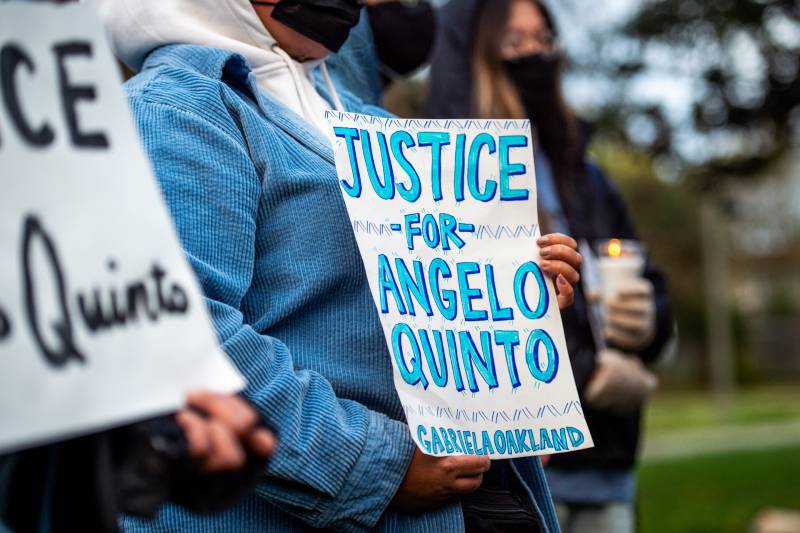The city of Antioch has agreed to a $7.5 million settlement with the family of Angelo Quinto, a 30-year-old Navy veteran who died at the hands of Antioch police officers in 2020, according to an attorney for his family.
Quinto was having a mental health emergency in his home on Dec. 23, 2020, when Antioch police forcibly restrained him, leading to his death by suffocation, according to the family’s civil rights lawsuit. That night, his family called police after he began to act paranoid and agitated.
Two officers arrived to find Quinto held in his mother’s arms and pulled him from her grasp, flipping him onto his stomach, according to a wrongful death claim filed by the family. As they did, Quinto called out, “Please don’t kill me,” at least twice, the claim said.
The officers crossed Quinto’s legs behind him and took turns kneeling on his neck, according to the claim, which said he started bleeding from his mouth after being restrained for nearly five minutes.
Paramedics began CPR and took Quinto to a hospital, where he was declared dead three days later.

